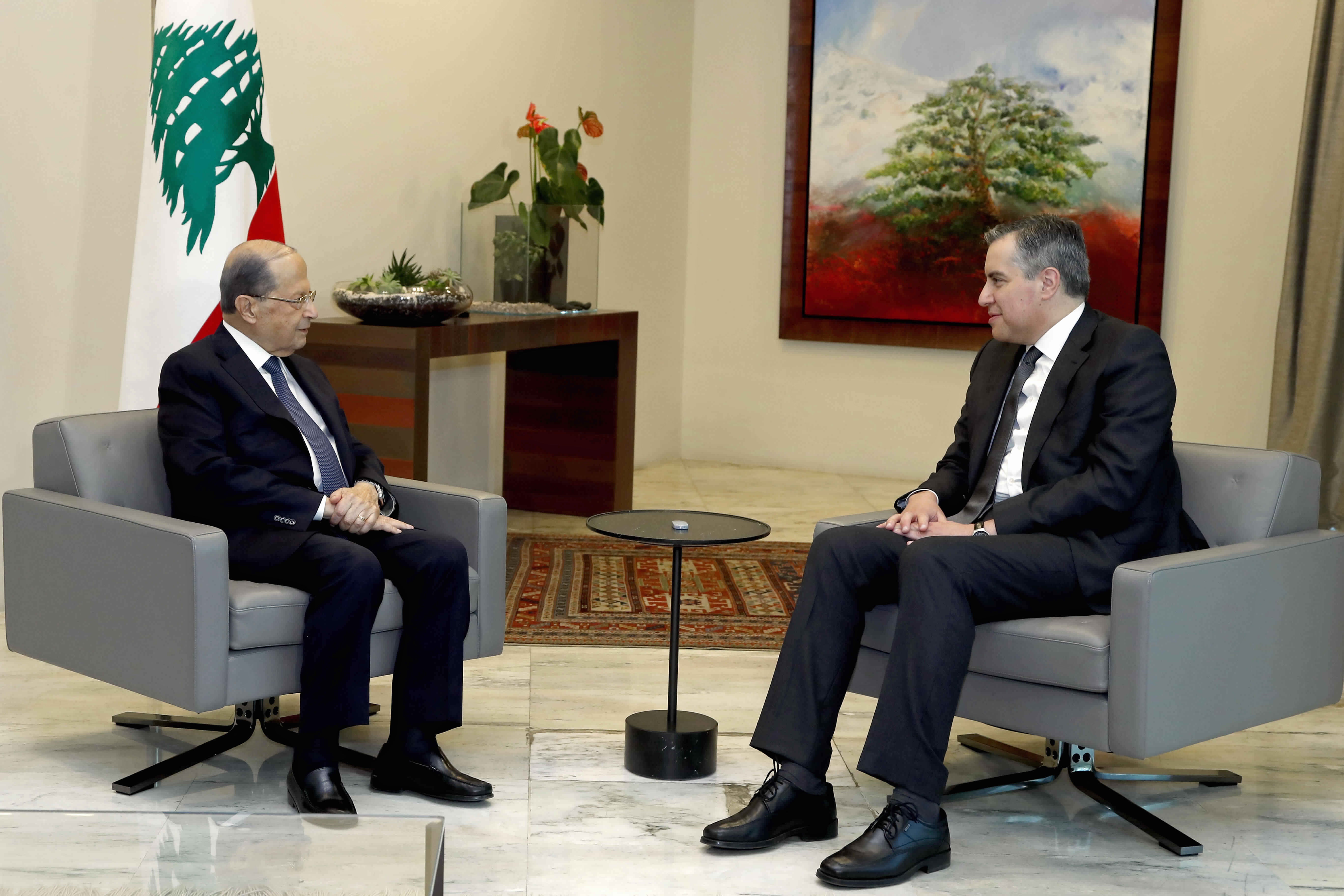Lebanese president warns of 'hell' if no new gov't is formed
Lebanon’s president has warned that the crisis-hit country could be going to “hell” if a new government is not formed

Your support helps us to tell the story
From reproductive rights to climate change to Big Tech, The Independent is on the ground when the story is developing. Whether it's investigating the financials of Elon Musk's pro-Trump PAC or producing our latest documentary, 'The A Word', which shines a light on the American women fighting for reproductive rights, we know how important it is to parse out the facts from the messaging.
At such a critical moment in US history, we need reporters on the ground. Your donation allows us to keep sending journalists to speak to both sides of the story.
The Independent is trusted by Americans across the entire political spectrum. And unlike many other quality news outlets, we choose not to lock Americans out of our reporting and analysis with paywalls. We believe quality journalism should be available to everyone, paid for by those who can afford it.
Your support makes all the difference.Lebanon's president warned Monday that the crisis-hit country could be going to “hell” if a new government was not formed soon.
In a televised address, President Michel Aoun criticized his political allies, the Shiite groups Hezbollah and Amal, for insisting on holding on to the Finance Ministry portfolio in any new government and on naming the Shiite ministers in the Cabinet.
Their insistence has undermined a French initiative led by President Emmanuel Macron for a Lebanese government of independent specialists that was to be formed by Sept. 15 to enact desperately needed reforms meant to extract the country from a devastating economic and financial crisis.
The crisis, which has led to the collapse of the Lebanese currency, has been worsened by the Aug. 4 explosion at Beirut’s port caused by the detonation of thousands of tons of ammonium nitrate, which killed nearly 200 people, injured thousands and caused losses worth billions of dollars.
The deadline for forming a government according to the French plan was missed last week, amid the political impasse over the Finance Ministry portfolio.
Asked by a reporter where Lebanon is headed if no government is formed soon, Aoun replied: “To hell, of course. Why else would I be standing here speaking if this wasn’t the case?”
Top Lebanese posts, including the job of president, prime minister and parliament speaker, are distributed according to sect in line with the country’s sectarian power-sharing agreement. While that agreement stipulates the even distribution of parliament and Cabinet seats between Muslims and Christians, it does not distribute seats according to sect.
Aoun, in his speech, said Lebanon is facing a Cabinet formation crisis which should not have happened because the challenges facing Lebanon “do not allow for wasting a single minute.” He said no sect has the right to monopolize any Cabinet portfolio and urged the two Shiite groups to return to the constitution.
In rare, clear criticism directed at his allies, he said: “We have offered reasonable solutions for forming a government but they were not accepted by the two groups.”
He also offered an extremely bleak vision for the future.
“As positions become harder, there doesn't seem to be a near solution on the horizon,” he said.
Macron has previously described his initiative, which includes a road map and a timetable for reforms, as “the last chance for this system.”
While initially committing to the plan and naming a new prime minister-designate who promised to deliver a Cabinet within two weeks, Lebanese politicians have been unable to meet the deadline amid divisions over the manner in which the government formation is being carried out, away from the usual consultations and horse-trading among political factions.
Efforts by Prime Minister-designate Moustapha Adib to form a government of experts without party loyalists soon hit snags, particularly after the U.S. administration slapped sanctions on two former Cabinet ministers and close allies of Hezbollah, including the top aide to the powerful Shiite Parliament Speaker Nabih Berri.
Berri, who heads the Hezbollah-allied Shiite Amal movement, and Hezbollah, insist on keeping hold of the Finance Ministry, which has been held by a Shiite close to Berri and Hezbollah for the past 10 years. Berri has also objected to the way the Cabinet formation was being undertaken, apparently angered that Adib has not been consulting them.
Adib, a Sunni according to Lebanon’s sectarian power-sharing system and former diplomat who is supported by Macron, got the backing of former Prime Minister Saad Hariri and was appointed to form a Cabinet on Aug. 31.